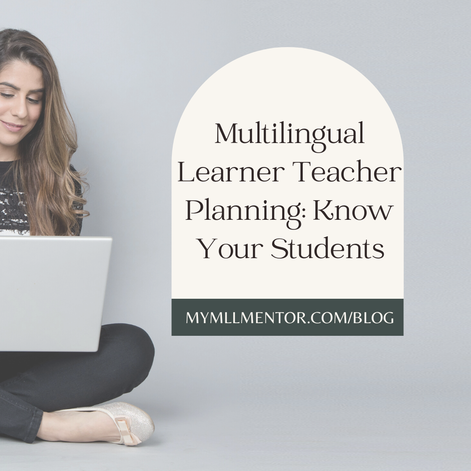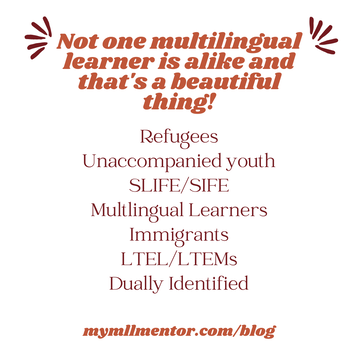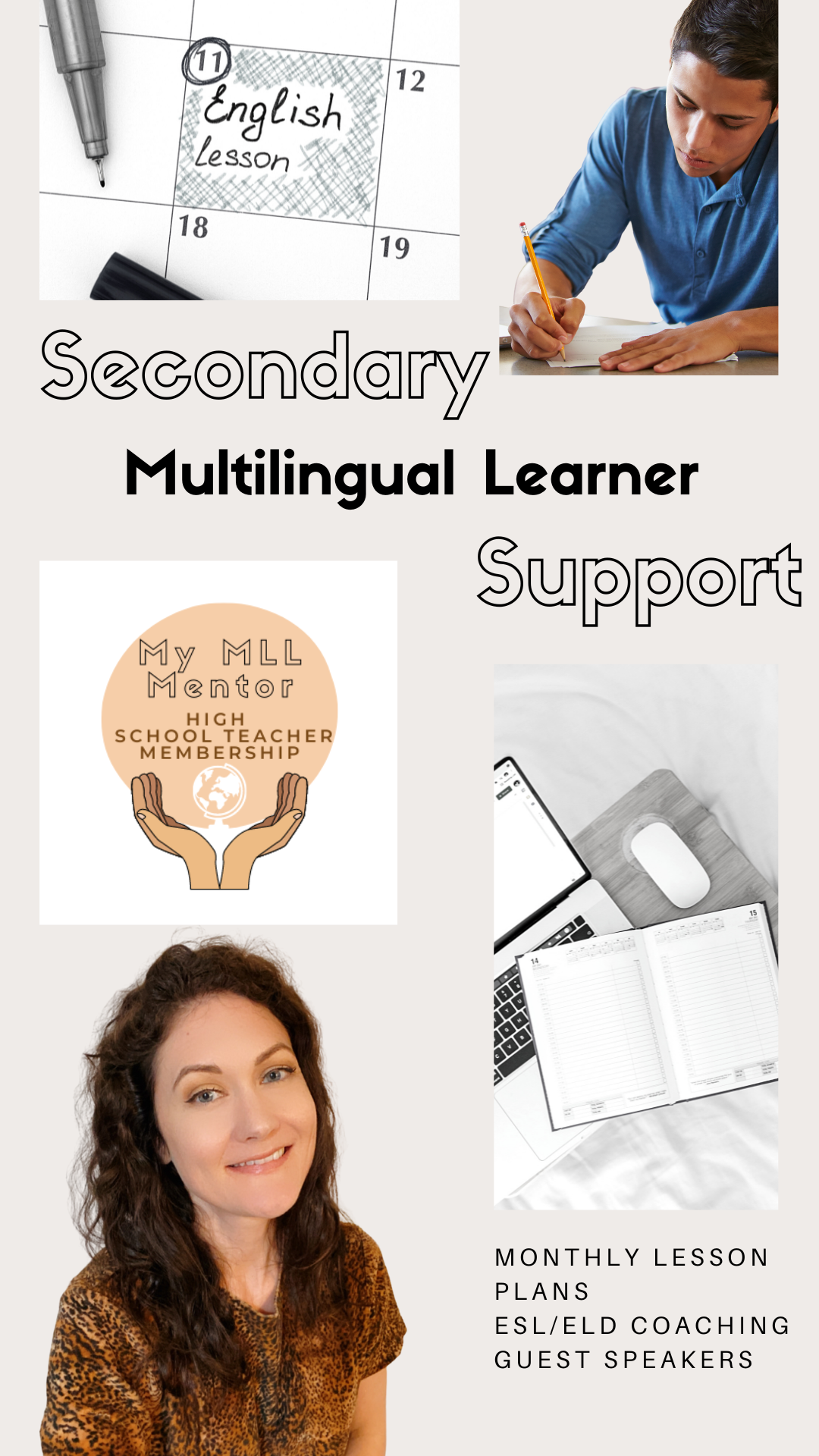|
This summer, we are talking all about getting prepared and ready for the upcoming school year for teachers of multilingual learners. My first post of the summer was all about reflection with a language lens in mind. Head back to that post before we get to the first step- knowing your ML and EL students!
Even if you don't have a roster of your students yet, you can still understand the different types of multilingual learners and their varying ranges of English language proficiency. Once we have a deep understanding, we will know exactly how to plan and support our students when we return back to school for the fall. Not one Multilingual Learner is alike And it is a beautiful thing! MLLs come to us from many different cultural backgrounds, countries, traditions, and languages. It's one of my favorite things about teaching ESL or ELD classes. First, we need to understand that there are different types of multilingual learners even within the different proficiency levels. Here are some types and terms for MLLs according to the US Department of Education Newcomer Toolkit:
Proficiency levels Next, we need to take a look at our student's data. What state assessment did they take and what was their overall score? Digging deeper, what were their scores for each language domain (speaking, writing, reading, and listening)? And how did those scores compare to years previously? If a student doesn't have scores, they will need to take an initial assessment. In addition to formal assessment data, what informal assessments and documents can we consult? Are there ILPs, or Individual Learning Plans? What about student profiles from previous years? What does that data and information tell us? Getting to know students through their stories After we understand our students through informal and formal data, it's important to give our students voice and hear their stories, if they are willing to share. We can do that with certain lessons such as My Story Personal Narrative lesson (here is a Newcomer version), through SEL activities, and through student interviews. Of course, we can't really do this until we receive our students, but we can certainly start planning lessons and activities for the beginning of the school year! Next Steps Once we start really getting to know our students, we can then start goal setting with language goals and begin thinking of which scaffolds and strategies might support them in our lessons to meet those goals. Stay tuned for the next post in this series, which is part 3- Creating Language Goals with Multilingual Learners.
0 Comments
Leave a Reply. |
AuthorI support middle and high school teachers through monthly lesson plans, coaching, and guest speaker offerings in our Secondary ESL Teacher Membership. Archives
April 2023
Categories
All
|



 RSS Feed
RSS Feed
